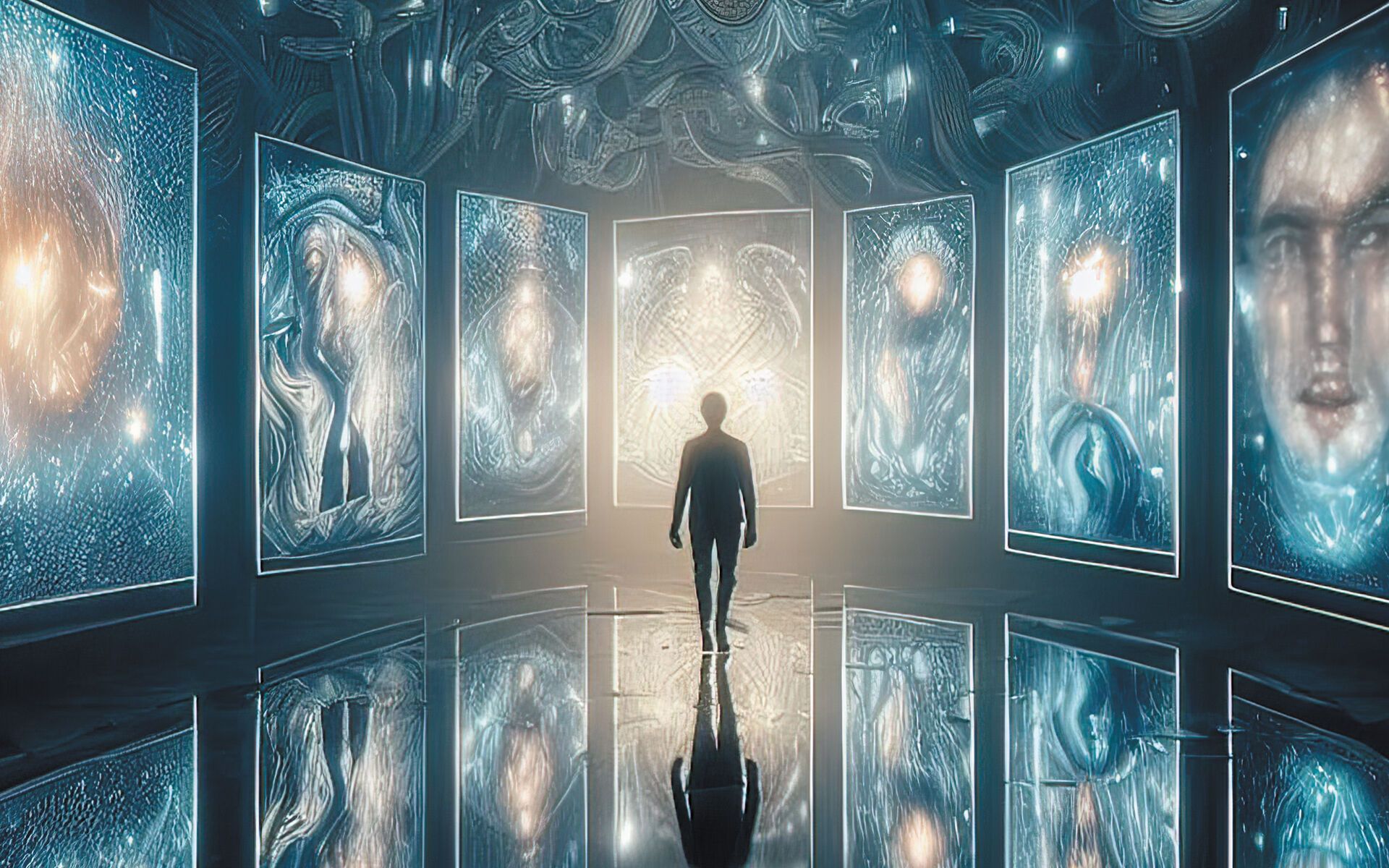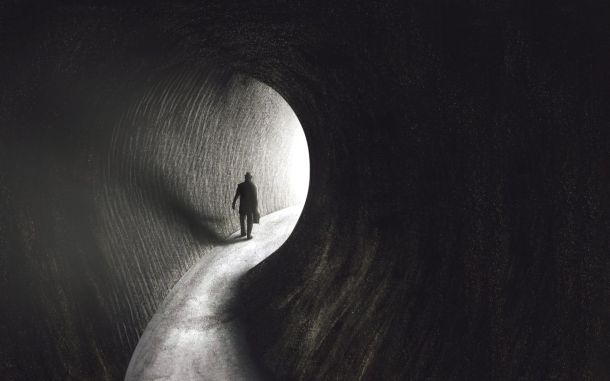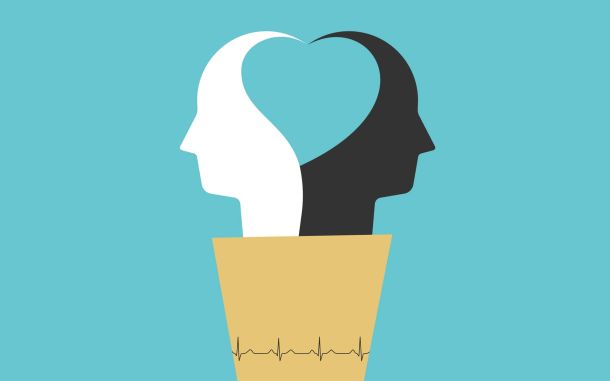Mirrors with Persona

In This Article
-
The believer is a mirror to his/her faithful fellow believer who protects them against loss and defends them behind their back.
-
Are not some of the people in our lives akin to concave mirrors? We might overlook or disregard seemingly insignificant details, yet they offer a broader perspective on these aspects, aiding us in making informed choices.
In contemplating the profound messages delivered by prophets throughout history, such as the teachings of Prophet Muhammad, one cannot help but recognize their universal appeal and the inclusive language in which they were conveyed. These messengers of wisdom reached out to humanity at all levels, employing words that were not only comprehensible but also deeply inspiring. I often find myself looking at the world through the lens of physics due to my physics background, perceiving intricate connections and implications for our social existence. While my words are firmly grounded in the profound teachings of these revered figures, which I may never fully grasp with my limited expressions, my exploration invariably leads me to frequent references to the laws of physics. It is within this intriguing convergence of spiritual wisdom and scientific understanding that we embark on a journey to explore the concept of mirrors – not just as physical objects but as powerful metaphors that illuminate our path toward greater understanding, compassion, and enlightenment.
Let's begin with one of these profound pearls of wisdom: "The believer is a mirror to his/her faithful fellow believer who protects them against loss and defends them behind their back." The person who conveyed this saying, Abu Huraira, also shared his understanding in the presence of Prophet Muhammad (pbuh): "The believer is a mirror to his brother/sister. If he sees something wrong with them, he should correct it." I believe that Abu Huraira's interpretation of this hadith is direct and accurate. When we gaze into a mirror, we correct our appearance and enhance our presentation by viewing ourselves from an 'outsider' perspective while still remaining within ourselves. The image we observe in the mirror represents "us," yet it is not us. We can analyze the image's features, attributes, and relation to the object or person in front of the mirror. This image metaphor brings to mind the biblical passage, "God Created Humanity in His Image" (Genesis 1:26-31, Psalm 8:1-9, 1 Corinthians 15:47-49). Additionally, in paying tribute to Abu Huraira, who has inspired our discussion, we recall the words of Prophet Muhammad (pbuh): "Allah created Adam in His image" (Sahih al-Bukhari 6227).
Now, let's direct our focus towards the fundamental laws of reflection, which are at the core of a mirror's function. One of the three laws of reflection states that "the angle of incidence is equal to the angle of reflection when a beam of light strikes the reflecting surface. The reflected ray, incident ray, and normal lie on the same plane." I understand that this sentence may appear quite complex, and filled with technical terminology. However, for reflection to take place effectively, everything must align harmoniously. This includes the incoming light, the mirror, and the reflected light. In a similar vein, a believer with sincere conviction, dedication, and faith finds themselves on a vast platform supported by the pillars of belief. Just as in the realm of optics where a mirror reflects light, in the realm of faith, every other believer can serve as a metaphorical mirror, revealing different aspects, dimensions, or angles of a fellow believer. This reflection is possible as long as they share the same plane of belief, understanding, mutual love, and cooperation.
Consider risky situations as analogous to mirrors placed on cars, roads, and sharp corners to prevent accidents. For instance, convex mirrors are particularly valuable in enhancing road safety because they aid in collision avoidance. These convex or domed mirrors provide a wide-angle view, enabling drivers to assess potentially hazardous intersections and see traffic around corners. Similarly, in our lives, we require individuals who serve as mirrors in various facets. Some reveal the risks of our life journeys, while others guide us in making decisions when we may not possess the full picture.
We are also familiar with face mirrors that magnify the objects they reflect, helping us discern details that might otherwise escape our notice. Are not some of the people in our lives akin to concave mirrors in this context? We might overlook or disregard seemingly insignificant details, yet they offer a broader perspective on these aspects, aiding us in making informed choices. Just as mirrors come in various sizes, shapes, and geometries, individuals in our lives exhibit diverse characteristics and qualities. Additionally, devices like kaleidoscopes, periscopes, and telescopes employ clever combinations or arrays of mirrors. The number, positioning, and alignment of these mirrors yield valuable outcomes and insights for us.
When we place two plane mirrors facing each other, between them, we see a corridor that extends to 'infinity.' Consider, for a moment, a close friend of yours with whom you share numerous common interests, understand each other deeply, and resonate harmoniously. In their presence, you never wish to part, cherishing endless conversations, because this person serves as a true mirror for you, with their heart perfectly aligned before you. In a sense, despite physical boundaries, you venture into the limitless corridors of companionship. As Bediuzzaman Said Nursi eloquently expresses regarding spouses: "Yes, the greatest fulfillment of a person's needs is the presence of a heart corresponding to their own, so that both sides may exchange their love, passion, and enthusiasm, and share in pleasures together, and assist and support each other in times of sorrow and sadness." This sentiment can be applied to spouses who are believers, serving as absolute perfect mirrors for each other.
We all know that, like everything in life, mirrors also require cleaning, care, and attention. They are fragile and delicate. They faithfully provide a complete reflection whenever you glance at them. Mirrors do not rely on batteries or electricity; they promptly and without delay respond with reflections. With consistent effort, positive investment, and proper care, you can combine multiple mirrors to gain deeper insights into the world or expand your horizons into heavenly realms. They compensate for your weaknesses, fill in your blind spots, and bring light from places where direct illumination is not possible. Indeed, every being in the universe serves as a mirror reflecting beauty, art, intelligence, compassion, and more.
Luminous entities spread, reflect, and exist in many places swiftly, while solid and concrete objects are confined to their immediate surroundings and require greater effort to transform and move. Just like a bubble contains the entire image of the Sun, qualities such as goodness, compassion, mercy, kindness, charity, smiles, care, and sincerity are light-like illuminating qualities that need mirrors to reflect them.
Connect with people, reflect the light you receive to others, be a mirror for others, and receive radiance at different wavelengths and frequencies. Amidst layers of darkness, let your gleam shine without concern for its apparent size. You will encounter mirrors in the darkness; as long as you reflect their faint glimmer, they will join you in challenging obscurities and darkness.








